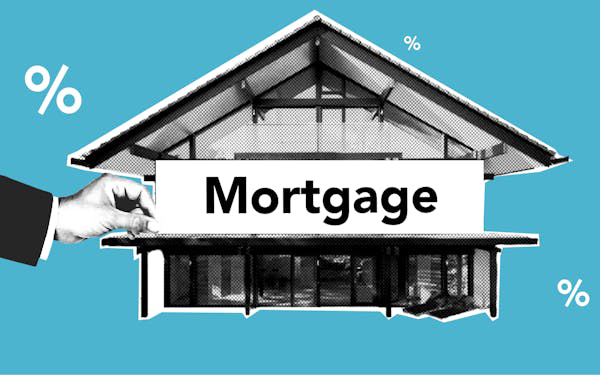Fixed rate Mortgages

Fixed Rate Mortgages: Secure Your Home Loan
In the world of mortgage planning, individuals looking to become homeowners have various financing options to consider. Among these, secure fixed rate mortgages stand out as a reliable choice for those aiming to lock in stable payments over the course of their home loan. A fixed rate mortgage offers the peace of mind of knowing that one’s monthly payments will remain constant regardless of market fluctuations, thereby facilitating easier budget management and long-term savings.
Key Takeaways
- Fixed rate mortgages ensure stable monthly payments, ideal for effective mortgage planning.
- Opting for a secure fixed rate mortgage helps homeowners lock in stable payments throughout the loan term.
- Mortgage stability is paramount for long-term financial forecasting and budgeting.
- Secure fixed rate mortgages shield borrowers from the volatility of interest rate swings.
- Choosing the right mortgage term can influence long-term cost savings and payment affordability.
Understanding Fixed Rate Mortgages
Entering the realm of homeownership often begins with selecting the right kind of home loan. A pivotal decision lies in understanding fixed rate mortgages, an option that garners considerable interest for its financial stability and predictability. This type of home loan remains a steadfast choice for those seeking a clear and consistent payment schedule over the course of their mortgage term.
Defining Fixed Rate Mortgages
At the core of what is a fixed rate mortgage is its unchanging interest rate which applies for the entire duration of the loan. Whether borrowers opt for a 30-year fixed rate mortgage or a shorter 15-year term, they benefit from the assurance that their mortgage payments will not be affected by the ebb and flow of the market’s interest rates. This permanence promotes easier financial planning and budgeting with fixed rate mortgages.
The Stability and Predictability of Fixed Payments
Fixed payment benefits are manifold, but paramount among them is the ability to forecast long-term financial obligations without the looming uncertainty of rate adjustments. Stable mortgage payments mean individuals can allocate their monthly expenditures knowing their home loan obligation won’t suddenly demand more of their budget due to external economic shifts.
Comparing 30-Year and 15-Year Fixed Rate Mortgages
The decision between a 30-year and a 15-year fixed rate mortgage involves a trade-off between monthly affordability and overall interest paid. Home loan options such as these should be weighed not only in terms of immediate cash flow but also considering the total financial implications over the life of the loan.


| Term Length | Monthly Payment | Total Interest Paid | Interest Rate |
|---|---|---|---|
| 30-Year Fixed Rate Mortgage | Lower | Higher | Typically Higher |
| 15-Year Fixed Rate Mortgage | Higher | Lower | Typically Lower |
This mortgage terms comparison often drives homebuyers to gravitate towards the 30-year option for its immediate budgetary ease, yet financially savvy buyers might lean towards the 15-year fixed rate mortgage as it entails less interest paid through time albeit with heftier monthly payments.
The Benefits of Low Fixed Rate Mortgage Options
For many homeowners, the allure of low fixed rate mortgages lies in their ability to provide predictable and consistent monthly expenses. The benefits of fixed rate mortgages extend well beyond the ease of budgeting. They also offer long-term savings—a hallmark of cost-effective home loans. By securing a low fixed rate, borrowers are effectively insulating themselves from the future uncertainties of fluctuating market interest rates.
When considering mortgage options, one must weigh the advantage of lower monthly payments against overall interest costs. By opting for a low fixed rate mortgage, homeowners may realize substantial savings on interest over the life of the loan. Here's a comparative look at the potential savings:
| Loan Type | Interest Rate | Monthly Payment | Total Interest Paid |
|---|---|---|---|
| 30-Year Fixed | 3.5% | $1,450 | $220,000 |
| 30-Year Fixed | 4.5% | $1,550 | $260,000 |
As illustrated, a lower interest rate materially decreases both monthly payments and total cost over the duration of a mortgage. These figures underscore the importance of securing a mortgage at a time when rates are favorable, as they bolster long-term affordability and financial health. Ultimately, the advantages of a fixed rate mortgage extend beyond stability; they underscore sound financial strategy and foresight in securing a home loan.
Fixed Rate Mortgage Vs Adjustable Rate Mortgage
When entering the housing market, prospective homeowners often find themselves weighing the options between fixed-rate and adjustable-rate mortgages. Each type offers distinct features that cater to different financial circumstances and considerations, underscoring the importance of a careful mortgage rates pros and cons analysis.
Initial Interest Rates and Long-Term Cost Implications
Initial interest rates comparison between fixed-rate mortgages and ARMs can be quite revealing. ARMs often attract buyers with their lower initial rates, presenting an appealing option for short-term savings. However, a long-term cost analysis may tilt the scales in favor of fixed-rate mortgages, especially if interest rates in the market rise, leading to increased costs over the duration of an ARM.
Understanding the Rate Adjustment Mechanisms in ARMs
The ARM understanding requires familiarity with the rate adjustment mechanisms that dictate changes in the interest rate after the initial fixed period. ARMs are subject to index rates and predetermined intervals that can alter monthly payments—components such as adjustment frequency, margins, and caps play critical roles in the long-term behavior of these loans.
The Pros and Cons of Fixed and Adjustable Rates
Within the fixed rate mortgage vs adjustable rate mortgage debate, both options have their merits. Fixed-rate mortgages grant the security of steady payments, invaluable for long-term budgeting. Adjustable-rate mortgages start off with more affordable payments but can lead to financial strain should the rate adjustment lead to a significant increase. Choosing between mortgage rate options often comes down to individual financial scenarios and risk tolerance levels.

How to Get a Fixed Rate Mortgage
Embarking on the journey to homeownership begins with understanding the mortgage application process, particularly when it comes to how to get a fixed rate mortgage. A fixed rate mortgage offers the benefit of predictable monthly payments, shielding the borrower from the rollercoaster of fluctuating interest rates. To set the stage for securing a fixed rate, it’s imperative to approach the mortgage application with a well-organized strategy.
- Analyze your credit score and history to ensure they reflect responsible financial behavior, as lenders will scrutinize this.
- Culled from your financial records, compile documentation such as tax returns, pay stubs, and bank statements that evidence stable income and savings.
- Research potential lenders to find favorable fixed rate mortgage terms, rates, and fees. Consider both traditional brick-and-mortar banks and online mortgage lenders.
- Pre-qualification is your next step. It gives a preliminary assessment of your mortgage readiness and borrowing cap.
- Formally initiate the application process by submitting a comprehensive application to your chosen lender, equipped with all necessary documentation.
- Upon conditional approval, a property appraisal will follow to ensure the loan does not exceed the home’s value.
- Review and accept the final loan terms, then proceed to closing, where you’ll sign the mortgage documents and make it official—secured rate and a new home included.
The steadfast nature of a fixed rate mortgage can be particularly appealing for first-time homebuyers who value consistency and ease during the mortgage process. Approached with preparation and clarity, securing a fixed rate mortgage can pave a smooth path to long-term homeownership.
Shopping for the Best Fixed Rate Mortgage Rate
When it comes to securing a home loan, understanding the factors affecting mortgage rates is essential for mortgage shopping. A borrower's financial health and credit score are key interest rate determinants, influencing not just the rates but also the terms offered by fixed rate mortgage lenders. By evaluating these elements and making thorough mortgage lender comparisons, one can find the best fixed rate mortgages tailoring to their financial situation.
Factors Affecting Mortgage Rates
The mortgage rates influence extends from personal credit history to global economic trends. Market dynamics such as inflation, the federal funds rate, and secondary market conditions can cause fluctuations in interest rates. Additionally, the property’s location, loan amount, and loan-to-value ratio play a part in determining the rate. Understanding these aspects is crucial to navigate the intricacies of loan acquisition.
How Your Credit Score Influences Your Rate
A borrower’s credit score is a critical measure of creditworthiness. A higher score can result in more favorable interest rates due to a lower perceived risk by lenders. Those with robust credit histories are more likely to secure lower mortgage rates, which highlights the importance of maintaining a positive credit profile long before initiating the mortgage shopping process.
Researching and Comparing Fixed Rate Mortgage Lenders
When pinpointing the best fixed rate mortgages, it’s indispensable to perform comprehensive research and comparisons among various lenders. Factors for consideration should extend beyond interest rates; also examine the loan terms, associated fees, and the lender’s reputation for customer service. Doing so ensures that beyond a competitive rate, the mortgage strategy aligns with the borrower’s long-term priorities and financial planning.
| Lender | Fixed Rate (% APR) | Loan Term (Years) | Minimum Credit Score | Customer Service Rating |
|---|---|---|---|---|
| Bank A | 3.75 | 30 | 720 | 4.5/5 |
| Bank B | 3.50 | 15 | 740 | 4.0/5 |
| Credit Union C | 3.625 | 30 | 700 | 4.2/5 |
| Online Lender D | 3.875 | 20 | 680 | 3.8/5 |
Calculating Your Payments: Fixed Rate Mortgage Calculator
When it comes to mortgage budgeting and planning your finances for homeownership, understanding your monthly obligations is crucial. Utilizing a fixed rate mortgage calculator becomes an indispensable step in this process. It simplifies the payment calculation, allowing borrowers to input variables such as the mortgage amount, interest rate, and term length to effectively predict their monthly expenditures.
Below is a general idea of how a fixed rate mortgage calculator may help a borrower map out their mortgage payment schedule, considering a fixed interest rate across the term of the loan:
- Enter the total loan amount you wish to borrow.
- Input the fixed interest rate you have been quoted or are aiming for.
- Choose the term of the mortgage, often ranging from 15 to 30 years.
- The calculator will compute the monthly payment, taking into account both principal and interest over the fixed term.
This digital tool assists in crafting a reliable mortgage budgeting framework. The calculations help to ensure that potential homeowners are not overextending themselves financially and that they are fully prepared for the responsibility of a monthly mortgage payment that fits within their economic means.

Conclusion
As we reach the end of our discussion, it is evident that for those stepping into the property market, comprehending the nuances of fixed rate mortgages is essential. In particular, first-time home buyers stand to benefit significantly by gaining clarity on how these loan structures operate, especially when contrasted with adjustable rate mortgages. The security of locking in stable mortgage payments provides an invaluable foundation for residential and financial stability.
Key Takeaways for First-Time Home Buyers
Embarking on the journey of homeownership involves navigating through a multitude of choices and considerations. Among the key takeaways for first-time home buyers is the importance of mortgage calculators as a planning tool. These calculators allow prospective homeowners to visualize their financial trajectory by forecasting monthly payments against various loan terms and interest rates. Additionally, absorbing home loan tips and understanding the gravity of interest rates and their long-term impact is critical for informed decision-making.
Final Thoughts: The Value of a Secure Home Loan
In final thoughts, the value of a secure home loan cannot be understated. Fixed-rate mortgages exemplify stable homeownership, without the anxiety associated with varying interest rates. They allow one to craft a predictable financial plan, with the assurance that their most significant investment is shielded from the unpredictable nature of the economy. Ultimately, the steadfast nature of a fixed-rate mortgage amounts to more than just the sum of its parts—it is the promise of a stable future, and for many, the fulfillment of the American dream.
FAQ
A fixed rate mortgage is a home loan option where the interest rate remains the same for the entire term of the loan, leading to consistent monthly payments and financial stability for borrowers.
A 30-year fixed rate mortgage typically offers lower monthly payments due to the longer loan term, making it more affordable in the short term, while a 15-year fixed rate mortgage usually has a lower interest rate and results in less interest paid over the life of the loan but comes with higher monthly payments.
Mortgage rates are influenced by broader economic conditions, the borrower's credit score, loan-to-value ratio, and specific policies of the lender, as well as market trends at the time of the loan application.
A fixed-rate mortgage calculator requires you to input the loan amount, mortgage term, and interest rate to estimate monthly payments. This tool helps in assessing affordability and planning your budget.
